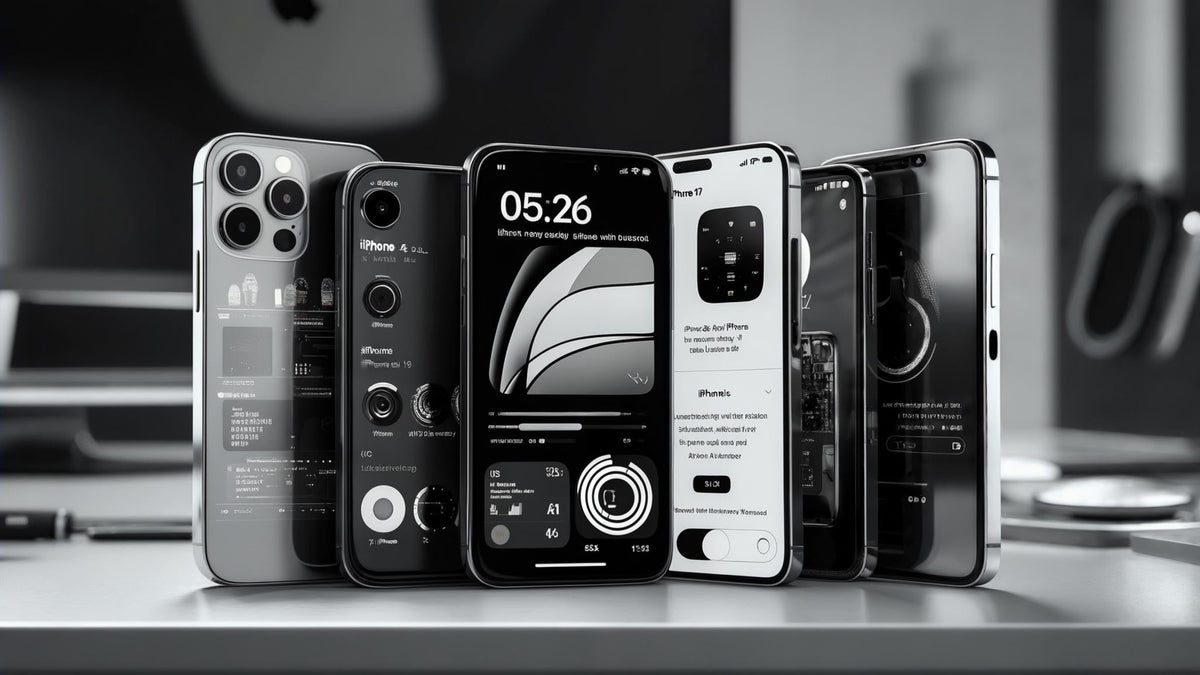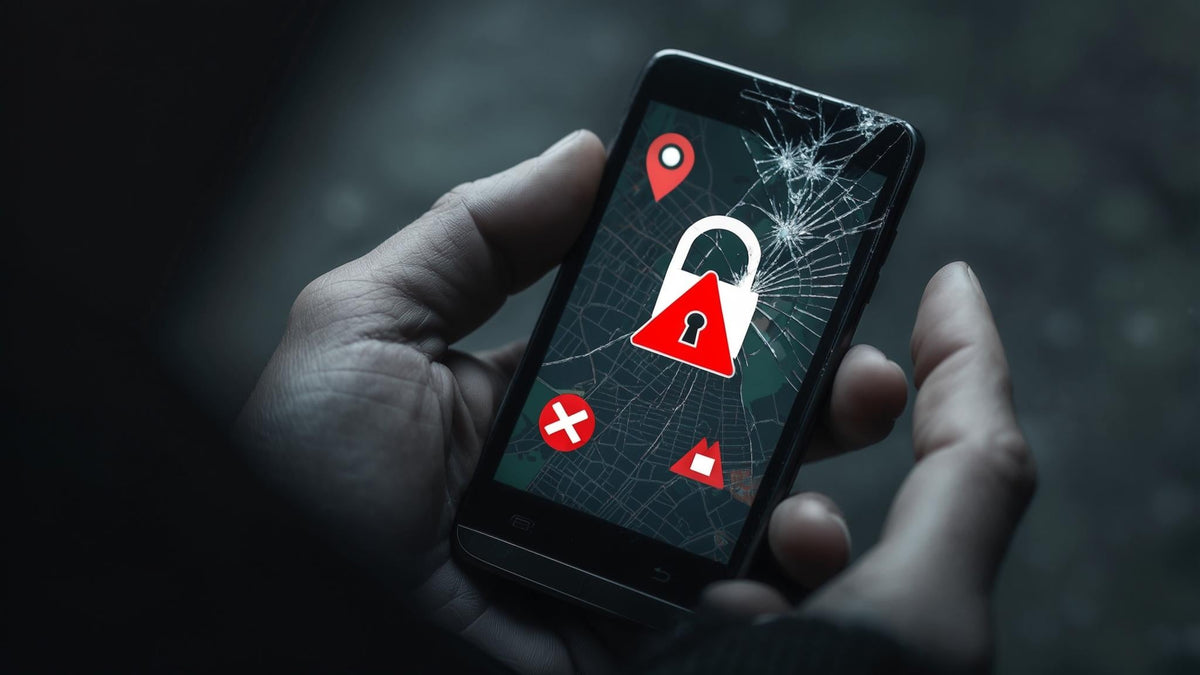That tiny camera lens on your phone? It's tougher than it looks, but it's not invincible. One bad drop or a pocket full of keys can leave you with blurry photos and a repair bill that'll make you wince. I've been there, and I'm here to help you avoid the same expensive mistakes.
Your phone's camera lens isn't just about taking pretty pictures anymore. Scratched camera lenses can mess with facial recognition, QR code scanning, and other apps that rely on clear camera input, making protection essential for your phone to work properly.
Table of Contents
How Your Lens Gets Damaged
What Lens Damage Really Costs You
Choosing Your Protection: Glass vs. Film
Pro-Level Protection Strategies
Maintenance That Actually Works
Final Thoughts
TL;DR
Lens repairs cost $150-400 and can cut your phone's value in half
Glass protectors beat film for serious protection
A good case with raised edges is your first line of defense
Check your protection monthly and replace before it fails
Multi-layer protection works best if you're hard on your phone
How Your Lens Gets Damaged
Most people don't think about their camera lens until something goes wrong. But that little piece of glass sticking out from your phone faces threats every single day that can wreck your photos and cost you serious money.
The Big Three: How Lenses Get Wrecked
Your lens can get destroyed in three main ways, and each one needs a different approach to prevent.
Drops and Impacts Hit Hard and Fast
This is the dramatic stuff - your phone hits concrete lens-first and that delicate glass doesn't stand a chance. Even a small crack lets dirt and debris into the camera assembly, potentially damaging internal components that cost way more to fix.
I watched a friend drop her iPhone 14 Pro while rushing for a train. It landed camera-first on concrete steps, instantly spider-webbing the main lens. Every photo after that showed streaks and blur. The repair? $280 for a complete camera module replacement, plus a week without her phone.
Understanding why rugged phone case protection matters becomes crystal clear when you see how vulnerable your camera lens is during everyday drops and accidents.
Death by a Thousand Scratches
This happens slowly. Keys in your pocket, sand from the beach, even dust particles can contain bits of metal or minerals harder than your lens glass. Each tiny scratch adds up until your photos look consistently hazy or show weird flares you can't fix.
The worst part? It happens so gradually you don't notice until it's too late. Contact from seemingly harmless objects can cause problems because dust often contains particles of metal or minerals that are harder than the lens, creating microscopic scratches that build up over time. Source: ZAGG
Hidden Environmental Damage
Fingerprint oils, moisture, chemicals, and pollution can permanently etch your lens surface. What looks like a dirty lens that should wipe clean actually turns out to be permanent damage that affects how light passes through.
Your Lifestyle Multiplies the Risk
Different lifestyles create different levels of risk for your camera lens.
Active Lives Need Serious Protection
If you're outdoors a lot, play sports, or work with your hands, your lens faces constant threats from impacts, debris, and rough conditions. Basic protection won't cut it.
Construction sites, hiking trails, and sports venues are lens killers. The combination of dust, potential impacts, and rough handling creates perfect conditions for camera damage. For people in demanding jobs, first responder phone cases are built to handle extreme conditions that would destroy regular protection.
City Life Has Its Own Hazards
Even if you work in an office, urban environments present challenges. Concrete and asphalt are unforgiving when phones drop. Air pollution creates films on lenses that can become permanently etched over time. The constant pocket-to-hand action of city life puts your lens through hundreds of tiny scratches daily.
What Lens Damage Really Costs You
Camera lens damage hits your wallet twice - first with repair costs, then again when you try to sell your phone and discover how much value a damaged lens destroys.
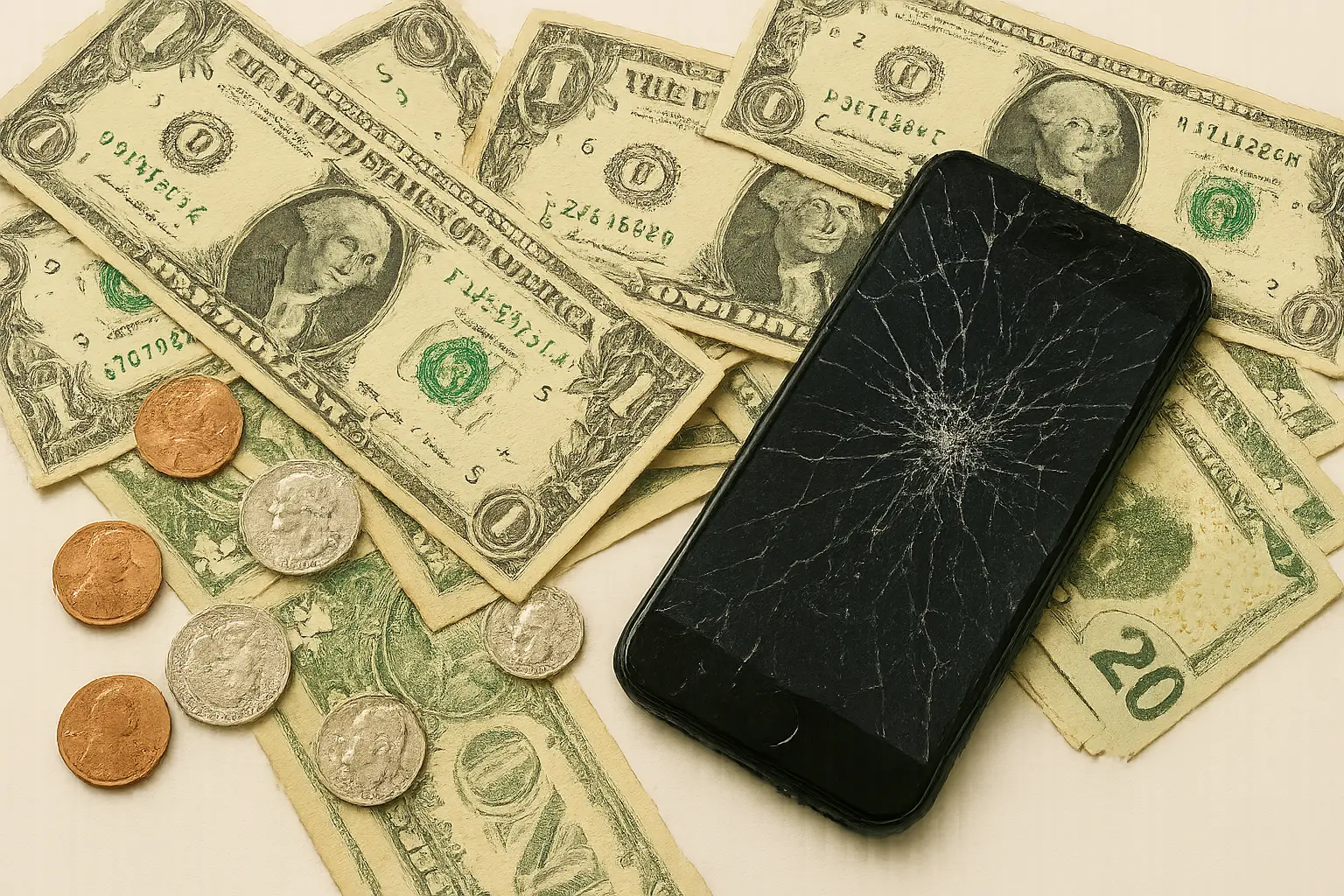
Repair Bills That Hurt
Here's what most people don't realize: you can't just replace the lens glass. Modern phones integrate everything so tightly that the entire camera module usually needs replacement. iPhone repairs run $150-300, while flagship Android phones can hit $400 or more.
Phone Model |
Lens Repair Cost |
Typical Repair Time |
Warranty Impact |
|---|---|---|---|
iPhone 15 Pro |
$280-320 |
5-7 days |
Voids warranty |
Samsung S24 Ultra |
$350-400 |
7-10 days |
Voids warranty |
Google Pixel 8 Pro |
$250-300 |
5-8 days |
Voids warranty |
OnePlus 12 |
$200-280 |
7-14 days |
Voids warranty |
Your Phone's Value Takes a Dive
A damaged camera lens can slash your phone's resale value by 30-50%. Try selling a phone with a cracked camera lens and watch potential buyers disappear. Those who stick around will lowball you because they know you're stuck with a damaged device.
Choosing Your Protection: Glass vs. Film
You've got two main options for protecting your camera lens: tempered glass protectors that offer maximum defense, or thin film that prioritizes looks over protection.
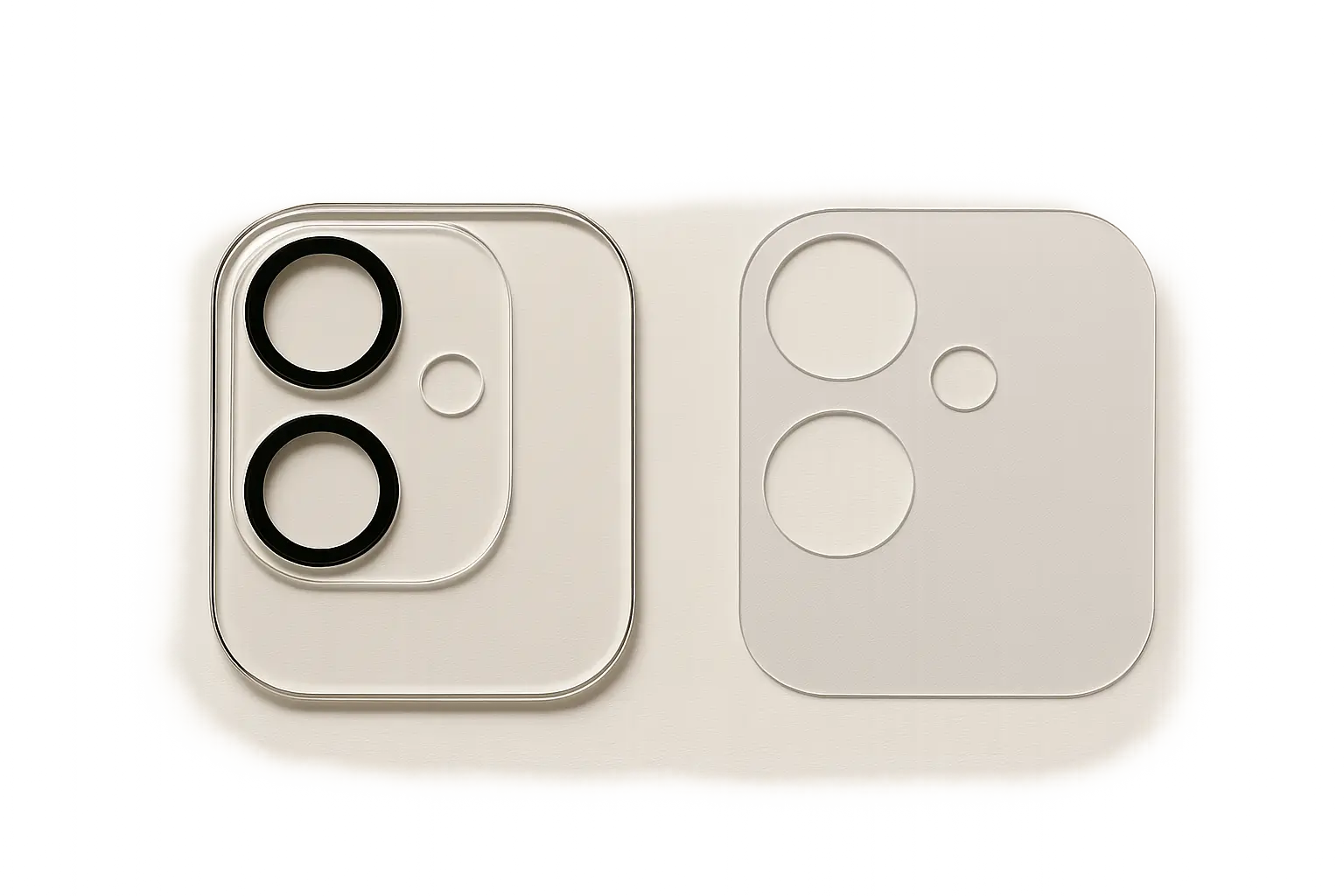
Tempered Glass: The Heavy Hitter
Glass protectors give you the best protection while keeping your photos crystal clear. They're thicker and require careful installation, but they can take a beating.
Getting Installation Right
This is where most people mess up. You need a clean environment (try your bathroom after running hot water - the steam settles dust), proper cleaning, and patience. Rush this and you'll get bubbles or dust trapped forever.
Here's what works:
Power off your phone completely
Clean with alcohol wipes, then microfiber cloth
Use the alignment guide - don't wing it
Apply from one edge and let it settle naturally
Press out bubbles immediately
Give it 24-48 hours to fully stick
Performance That Doesn't Compromise
Quality glass protectors maintain 99% light transmission while giving you scratch resistance that matches your original lens. You shouldn't notice any difference in photo quality if it's installed right.
High-quality lens protectors are engineered to be optically transparent with minimal impact on photo quality, with premium options featuring advanced anti-reflective coatings and ultra-high light transmission rates (often 99%+) that preserve exceptional image quality. Source: Digital Camera World
Film Protection: Light Defense
Thin film protectors offer basic scratch protection with almost no added bulk. They're cheaper but won't save you from serious impacts.
Film works fine if you're careful with your phone and mostly worry about keys and pocket sand. But don't expect it to save you from a concrete drop - serious impacts will go right through to your actual lens.
Your Case: The Foundation
A good phone case with raised camera edges might be the most important protection you can get. It prevents your lens from ever touching surfaces when you set your phone down.
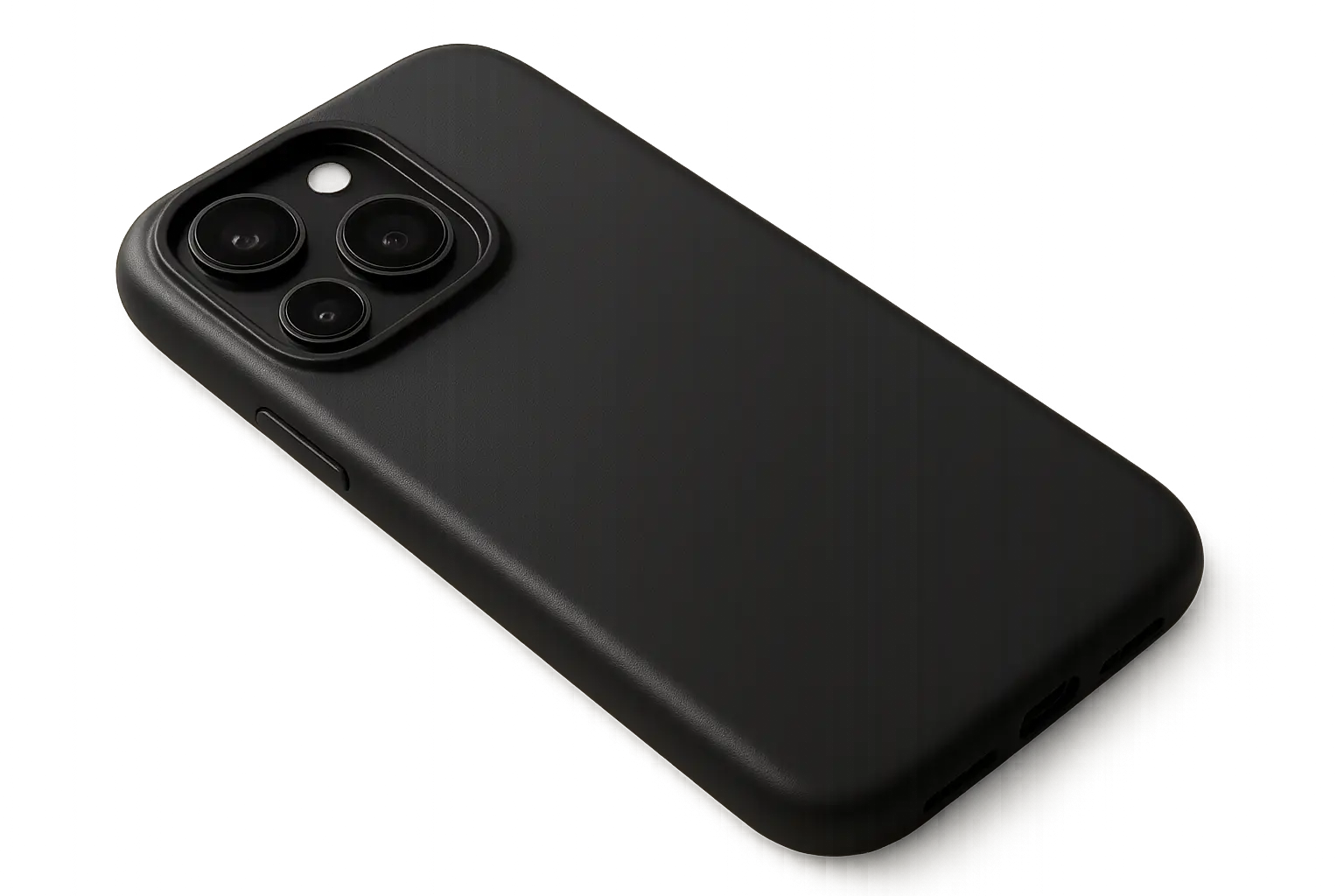
That raised edge needs to be higher than your lens - measure it if you're not sure. The bump also needs to cover all your cameras, since modern phones often spread them across a larger area.
Quality cases use materials like polycarbonate or TPU that flex and absorb impact energy instead of cracking and transferring all that force to your phone.
Pro-Level Protection Strategies
If you're serious about protecting your investment, basic solutions might not be enough. Professional-grade protection combines multiple layers of defense.
Building Your Defense System
The best protection uses multiple layers - each one backs up the others so if one fails, you're still covered.
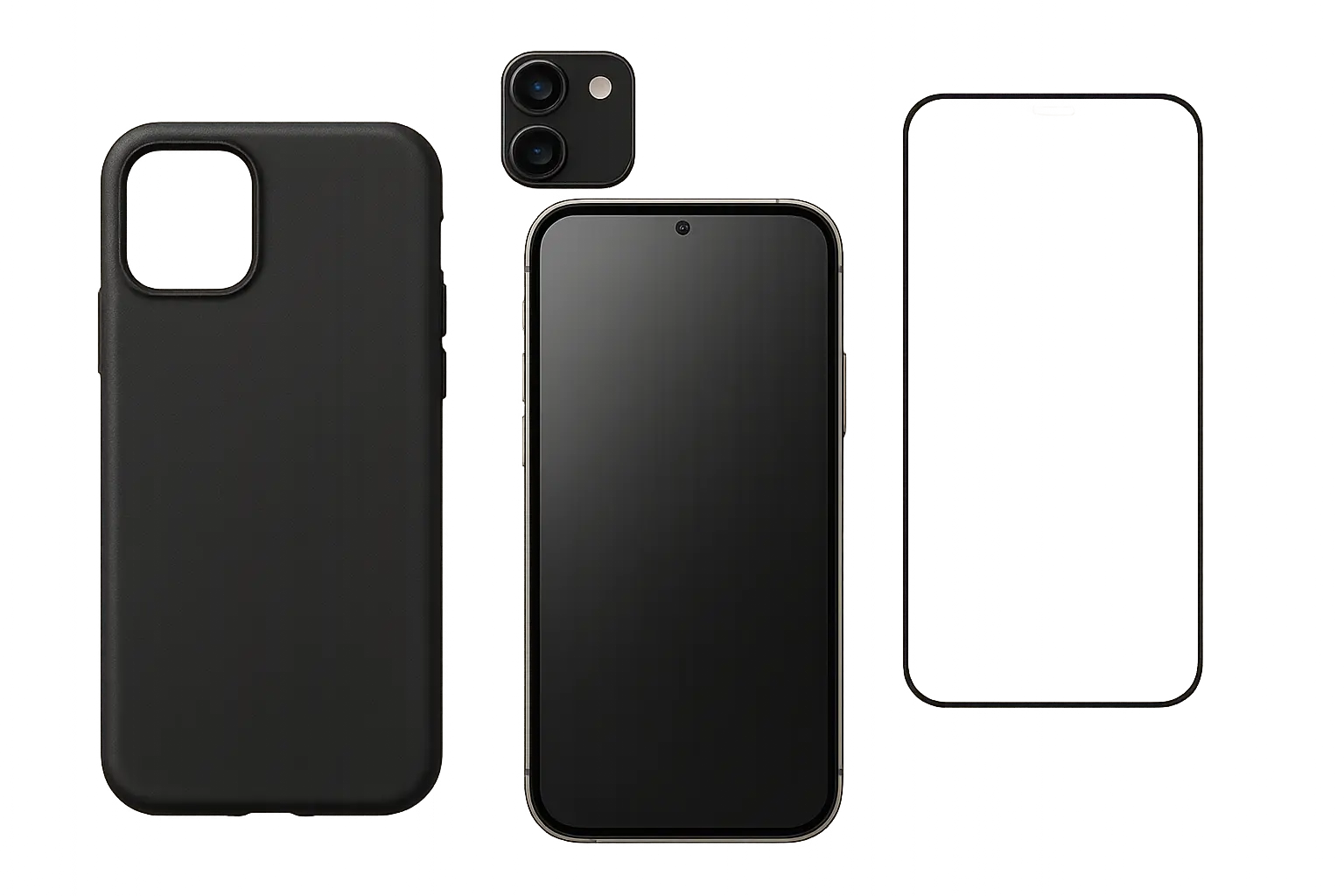
Start with a quality case that has proper camera bump protection. Add a glass lens protector for direct defense. Finally, develop habits that keep you out of high-risk situations when possible.
A photographer I know uses this system on his iPhone 15 Pro: military-grade case with 2mm camera bump, individual glass protectors on each lens, and a lanyard to prevent drops. During a dusty outdoor wedding, his protectors got scratched up but his actual lenses stayed perfect. That $15 protector replacement saved him hundreds in potential repairs.
For professionals who need maximum protection, motorcycle phone mount systems show the engineering behind truly robust protection that handles extreme conditions.
Military-Grade Solutions
Specialized protection for first responders and military meets MIL-STD-810G standards - real testing that covers 6-foot drops, temperature extremes, humidity, and chemical exposure.
This isn't marketing fluff. MIL-STD-810G testing includes multiple drops from various angles, temperatures from -40°F to 160°F, and humidity up to 95%. Cases meeting this standard work when lives depend on them.
Maintenance That Actually Works
Good protection needs regular care to keep working properly. A few minutes of maintenance can save you hundreds in repairs.
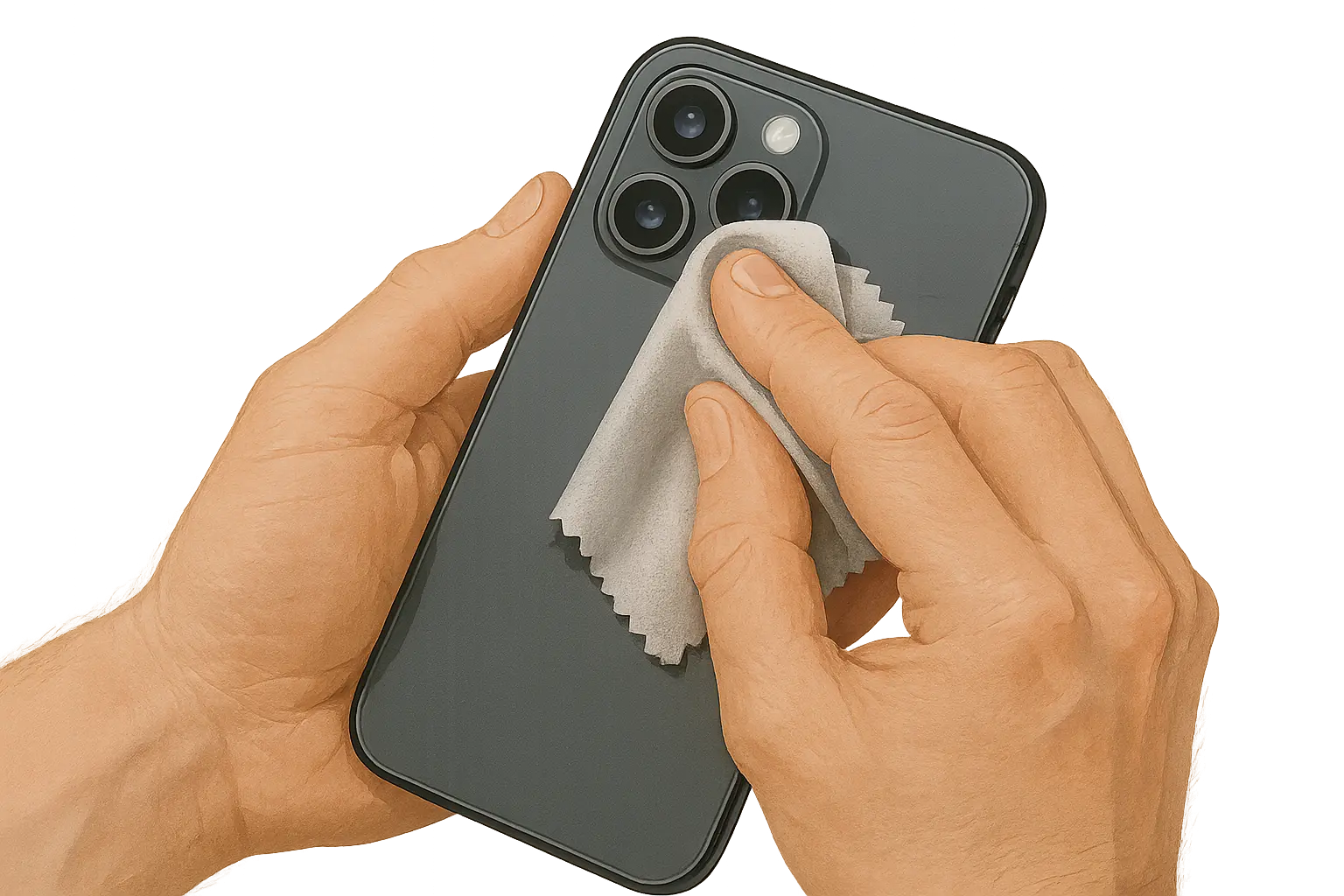
Quick Weekly Checks
Every week, take a close look at your lens protector under good light. Look for edge lifting, scratches, chips, or trapped debris. Catching problems early means replacing a $10 protector instead of a $300 camera.
Cleaning Without Damage
Use microfiber cloths designed for optics - not your shirt or paper towels, which can scratch. For stubborn smudges, use lens cleaning solution or distilled water. Skip household cleaners that can damage protective coatings.
Knowing When to Replace
Any visible damage to your protector means it's already absorbed impacts that would have hit your actual lens. That's good - it's doing its job - but it also means protection capacity is reduced.
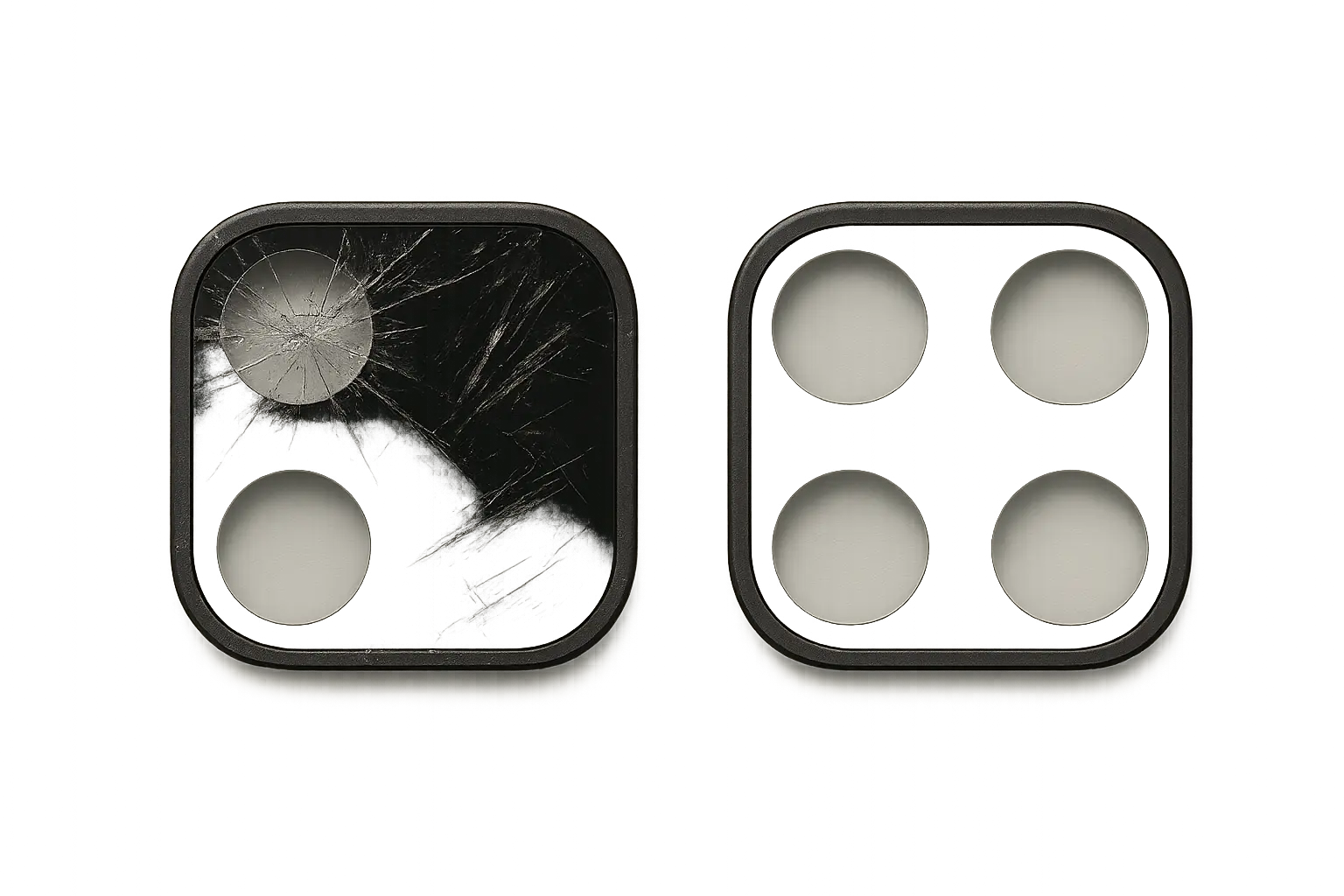
If your photos suddenly look less sharp or you're getting more lens flare, check your protector. Microscopic scratches might be affecting image quality.
Planning Ahead
Replace glass protectors every 6-12 months and film protectors every 3-6 months, even if they look fine. Keep spares on hand so you can replace damaged protection immediately instead of waiting for shipping.
Protection Type |
Replacement Schedule |
Warning Signs |
Cost Range |
|---|---|---|---|
Tempered Glass |
6-12 months |
Chips, edge lifting, reduced clarity |
$8-25 |
Film Protector |
3-6 months |
Peeling, yellowing, scratches |
$5-15 |
Case Bumper |
12-18 months |
Cracks, wear marks, reduced height |
$15-80 |
How Rokform Protects Your Investment
Rokform's military-grade cases provide the foundation for serious camera lens protection through precisely engineered camera bumps and 6-foot drop protection trusted by professionals who can't afford equipment failure.
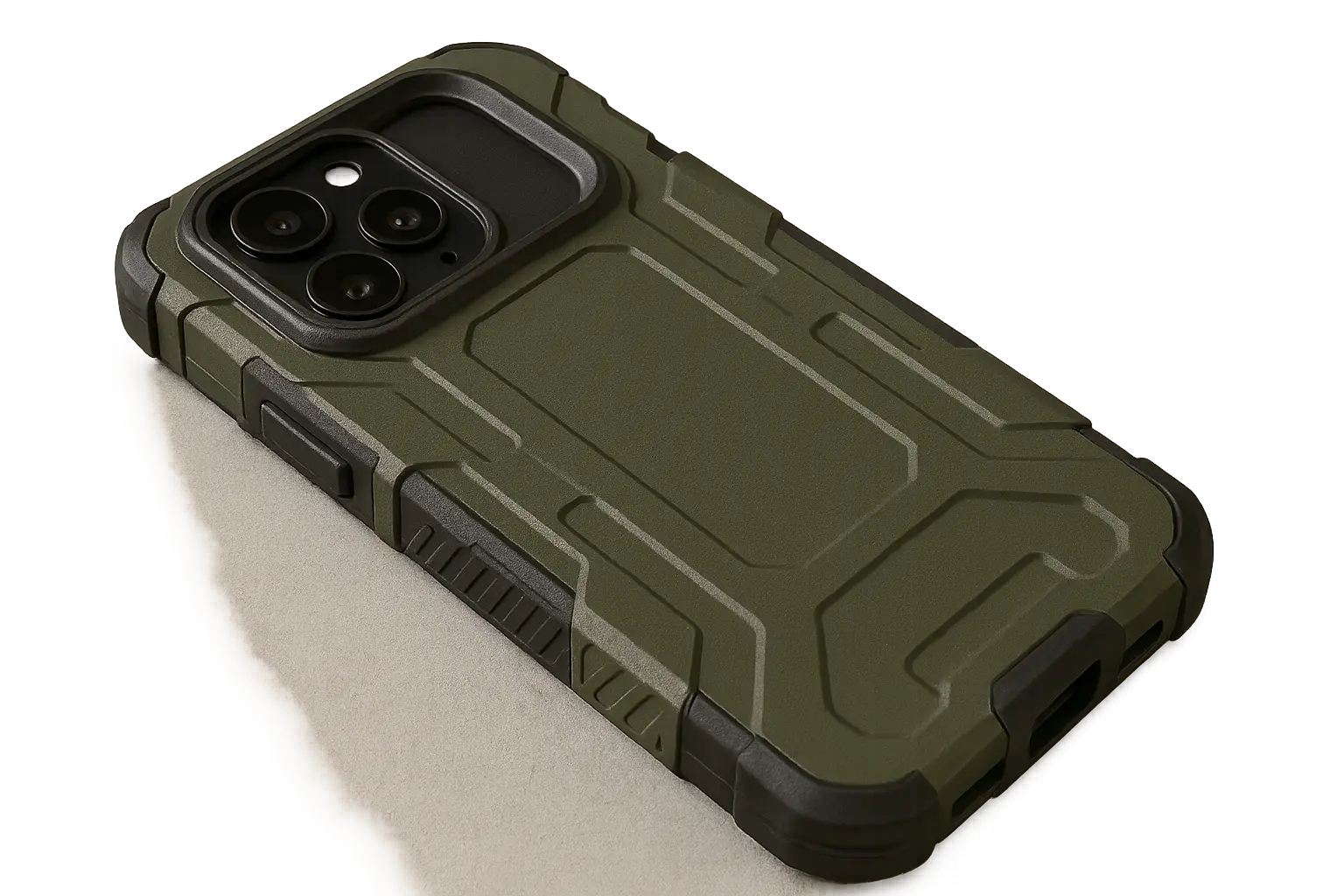
These cases feature camera bumps that extend well beyond your lens surface, creating a protective barrier that works 24/7 without any thought or maintenance. The polycarbonate construction meets military standards, meaning your camera stays protected in conditions that destroy consumer-grade cases.
For users building comprehensive protection systems, Rokform cases provide the robust foundation that works with glass lens protectors and professional mounting systems. Beyond basic protection, Rokform's camera lens protector kits offer complete solutions for users who understand that comprehensive lens protection requires both passive case defense and active glass protection working together.
Final Thoughts
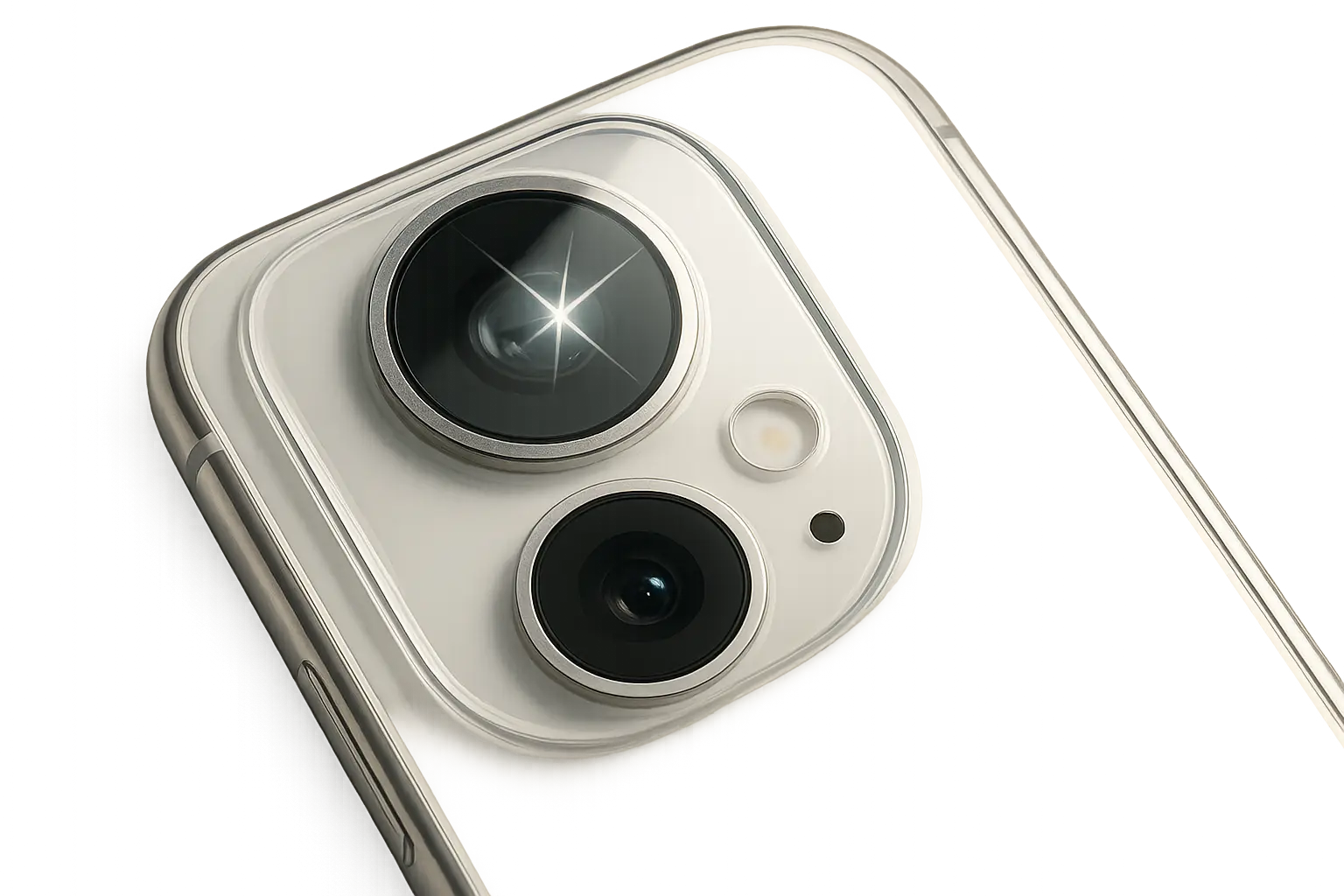
Your phone's camera lens is both incredibly important and surprisingly vulnerable. The difference between a protected lens and an exposed one often comes down to a single moment - that drop, scratch, or impact you never saw coming.
I've watched too many people learn this lesson the expensive way, dealing with hundreds in repair costs because they thought careful handling was enough. Accidents happen to everyone, and when they do, you want protection standing between your lens and disaster.
The investment in proper protection - whether it's a quality glass protector, a military-grade case, or a complete multi-layer system - pays for itself the first time it saves you from a repair bill. More importantly, it preserves the photo quality and resale value that make your phone worth protecting.
Don't wait until you're staring at a cracked lens wondering about repair costs. Take action now while your lens is still perfect and protection can actually do its job. Your future self will thank you when that inevitable accident happens and your camera keeps working perfectly.








